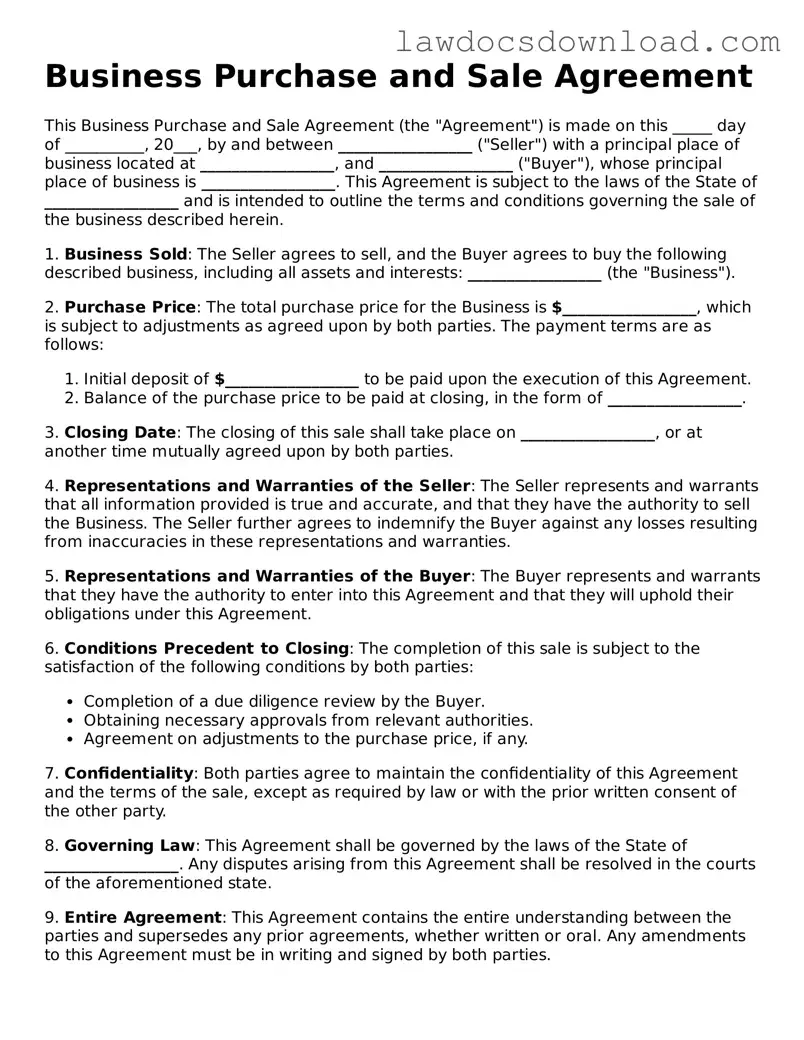Business Purchase and Sale Agreement
This Business Purchase and Sale Agreement (the "Agreement") is made on this _____ day of __________, 20___, by and between _________________ ("Seller") with a principal place of business located at _________________, and _________________ ("Buyer"), whose principal place of business is _________________. This Agreement is subject to the laws of the State of _________________ and is intended to outline the terms and conditions governing the sale of the business described herein.
1. Business Sold: The Seller agrees to sell, and the Buyer agrees to buy the following described business, including all assets and interests: _________________ (the "Business").
2. Purchase Price: The total purchase price for the Business is $_________________, which is subject to adjustments as agreed upon by both parties. The payment terms are as follows:
- Initial deposit of $_________________ to be paid upon the execution of this Agreement.
- Balance of the purchase price to be paid at closing, in the form of _________________.
3. Closing Date: The closing of this sale shall take place on _________________, or at another time mutually agreed upon by both parties.
4. Representations and Warranties of the Seller: The Seller represents and warrants that all information provided is true and accurate, and that they have the authority to sell the Business. The Seller further agrees to indemnify the Buyer against any losses resulting from inaccuracies in these representations and warranties.
5. Representations and Warranties of the Buyer: The Buyer represents and warrants that they have the authority to enter into this Agreement and that they will uphold their obligations under this Agreement.
6. Conditions Precedent to Closing: The completion of this sale is subject to the satisfaction of the following conditions by both parties:
- Completion of a due diligence review by the Buyer.
- Obtaining necessary approvals from relevant authorities.
- Agreement on adjustments to the purchase price, if any.
7. Confidentiality: Both parties agree to maintain the confidentiality of this Agreement and the terms of the sale, except as required by law or with the prior written consent of the other party.
8. Governing Law: This Agreement shall be governed by the laws of the State of _________________. Any disputes arising from this Agreement shall be resolved in the courts of the aforementioned state.
9. Entire Agreement: This Agreement contains the entire understanding between the parties and supersedes any prior agreements, whether written or oral. Any amendments to this Agreement must be in writing and signed by both parties.
10. Signatures: By their signatures below, the parties hereby agree to the terms and conditions set forth in this Agreement.
Seller's Signature: _____________________ Date: _______________
Buyer's Signature: _____________________ Date: _______________

